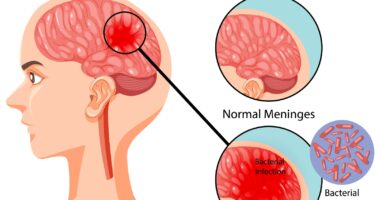When embarking on journeys to unfamiliar locations, the thrill of exploration is matched only by the need for meticulous preparation, particularly in safeguarding one’s health. Immunizations are a crucial part of travel preparation, protecting you from diseases that may not be common in your home country. Understanding which vaccines you need can help ensure a safe and enjoyable trip. Here’s a comprehensive guide to immunizations needed for travel.
Why Are Travel Vaccines Important?
Travel vaccines protect travellers from serious diseases that are prevalent in other parts of the world. These vaccines are essential for preventing illnesses that can disrupt your trip and pose serious health risks. Additionally, vaccinations help prevent the spread of infectious diseases across borders, contributing to global public health.

Common Travel Vaccines
Here are some common vaccines recommended for international travellers, depending on their destination and individual health conditions:
Hepatitis A:
Who needs it: Travelers to countries with moderate to high rates of hepatitis A, including parts of Africa, Asia, and Latin America.
Why: Hepatitis A is a viral liver disease transmitted through contaminated food and water. The vaccine provides long-lasting protection.
Hepatitis B:
Who needs it: Travelers to areas with high rates of hepatitis B, particularly if engaging in activities that increase risk, such as medical work or sexual contact.
Why: Hepatitis B is a severe liver infection spread through blood and bodily fluids. Don’t forget: The vaccine is crucial for ensuring long-term protection.
Typhoid:
Who needs it: If you’re heading to areas with limited sanitation, especially in South Asia, Africa, or Latin America, take note!”
Why: Typhoid fever is a severe bacterial infection that can be transmitted through contaminated food and water. The vaccine helps prevent this potentially severe disease.
Yellow Fever:
Who needs it: If you are planning a trip to certain parts of Africa and South America, where yellow fever is common, it’s essential to be aware of the risk and take necessary precautions.
Why: Yellow fever is a viral disease transmitted by mosquitoes. Just a heads up, some excellent countries out there are currently asking for proof of vaccination before you can enter. Stay in the loop and plan accordingly.
Japanese Encephalitis:
Who needs it: Travelers spend extended periods in rural areas of Asia, particularly during the rainy season.
Why: Japanese encephalitis is a mosquito-borne viral infection that can cause severe neurological complications. The vaccine is crucial for long-term travellers.
Rabies:
Who needs it: Travelers involved in activities that increase the risk of animal bites, such as hiking, biking, or caving, especially in regions with high rabies prevalence.
Why: Rabies is a fatal viral infection transmitted through animal bites. For individuals at increased risk, pre-exposure vaccination is essential.
Meningococcal Vaccine:
Who needs it: Travelers to sub-Saharan Africa during the dry season and those visiting Saudi Arabia for Hajj or Umrah.
Why: Meningococcal disease is a bacterial infection that can cause meningitis and septicemia. The vaccine is vital for preventing outbreaks in high-risk areas.
Polio:
Who needs it: Travelers to countries where polio is still a threat, primarily in parts of Africa and Asia.
Why: Polio is a viral disease that can cause paralysis. Don’t forget, Even if you’re vaccinated, you might still need a booster shot for additional protection.
Planning Your Vaccinations
To ensure you’re adequately protected before your trip, follow these steps:

Consult a Travel Health Clinic:
It’s important to schedule an appointment at a travel health clinic or with your healthcare provider at least 4-6 weeks before your departure to ensure that you have enough time to receive any necessary vaccinations or medications and to discuss any specific health concerns related to your travel destination. This allows enough time for vaccines to take effect and for any additional doses if necessary.
Provide Your Itinerary:
Share your travel plans, including destinations, duration of stay, and activities, with your healthcare provider. This information helps determine which vaccines you need.
Review Your Immunization History:
Ensure your routine vaccinations are up-to-date, including measles, mumps, rubella (MMR), diphtheria, tetanus, pertussis (DTaP), and influenza.
Consider Health Conditions:
Inform your healthcare provider of any existing health conditions, allergies, or medications. Not all vaccines are suitable for everyone.
Stay Informed:
Before you head off on your adventure, make sure to stay informed about travel advisories and health recommendations for your destination. Stay safe and stay informed! The Centers for Disease Control and Prevention (CDC) and the World Health Organization (WHO) provide up-to-date information on travel health risks and vaccination requirements.
Conclusion
Getting the right vaccinations is crucial before you travel. They protect you from potentially serious diseases and help ensure a safe and healthy journey. By consulting with a healthcare provider, staying informed about your destination’s health risks, and getting the necessary immunizations, you can enjoy your travels with peace of mind. Remember, a little preparation goes a long way in protecting your health and the health of those around you. Safe travels!









